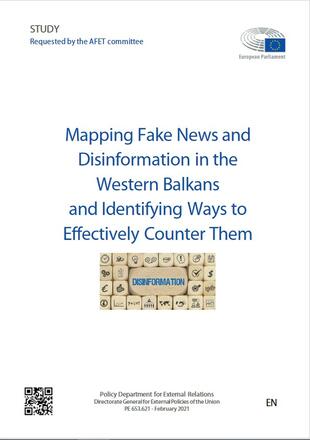According to this study, disinformation is an endemic and ubiquitous part of politics throughout the Western Balkans, without exception.
A mapping of the disinformation and counter-disinformation landscapes in the region in the period from 2018 through 2020 reveals three key disinformation challenges: external challenges to EU credibility; disinformation related to the COVID-19 pandemic; and the impact of disinformation on elections and referenda.
The analysis confirms that disinformation (and information disorder more broadly) is a symptom of social and political disorder, rather than the cause.
Among the study’s key findings are the following:
- In countries – such as Serbia and Montenegro – where politics has been dominated by a single group, disinformation tends to follow the ‘party line’, serving the interests of the powerful and undermining opposition;
- In more competitive political environments – such as Albania, Kosovo and (to an extent) North Macedonia – disinformation tends to be used opportunistically by all sides, pursuing short-term aims rather than long-term strategies;
- The presence of deep ethnic and/or sectarian divides – such as in Bosnia and Herzegovina, and North Macedonia – fosters xenophobic disinformation campaigns by both domestic and foreign actors;
- When a government’s sovereignty is new or challenged – such as in Bosnia and Herzegovina, Kosovo and North Macedonia, and to a lesser extent in Montenegro – politics are especially vulnerable to geopolitically motivated interference;
- While disinformation affects many – though by no means all – elections and referenda in the Western Balkans, it is not the case that disinformation is the cause of democratic breakdown. Rather, it is the lack of commitment to democratic governance by domestic political actors that opens the door to the productive use of disinformation as a tool of political competition.
The content of this article can be used according to the terms of Creative Commons: Attribution-NonCommercial 4.0 International (CC BY-NC 4.0) . To do so use the the wording "this article was originally published on the Resource Centre on Media Freedom in Europe" including a direct active link to the original article page.


